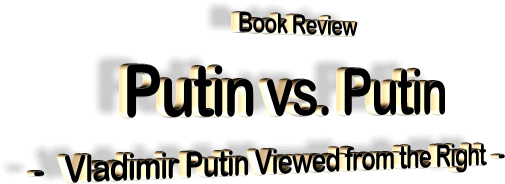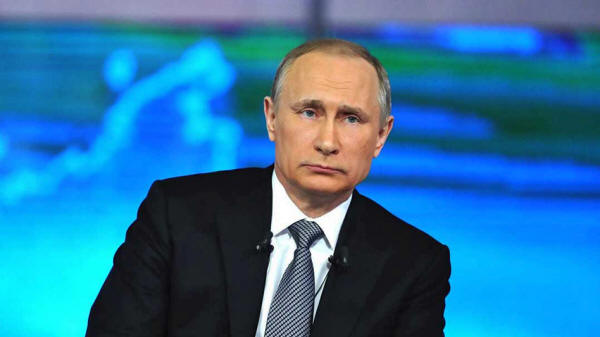|
from ForeignPolicyJournal Website
Spanish
version
provides insights into a man and his times by someone well-positioned to observe
in a detached manner. Alexander Dugin
Arktos Media
Ltd., 2015
That there could exist any such entity itself, indicates something about Russia.
Dugin,
As such, Dugin is often
portrayed as a bogeyman by Western academics and Russophobes,
as an almost Rasputin-type figure, influencing from
behind-the-scenes.
Dugin is portrayed by
these types as a "fascist," which enables them to maintain the
mediocre standards of Western academe, to ensure their papers are
published by idiot-reviewed journals, and definitely does not
require them to undertake any sound scholarship in regard to
historical, ideological and philosophical antecedents, which are put
in the "too hard" basket by budding "scholars" at the very start of
their entrance into the unhallowed halls of academia.
Dugin makes it clear that he is supportive of Putin not only as the man who is best for Russia, but as,
However, the reader should not assume that such praise indicates Dugin as a Putin fanatic, nor even that Putin is regarded as having real greatness; merely that Putin is the best available, and could be much more.
Hence the title "Putin vs. Putin" considers two sides to someone trying to balance factions while maintaining Russia's sovereignty, yet without an ideological foundation.
There are the liberal
elite, and the great mass of Russians whose orientation is
collectivistic as distinct from the hyper-individualism
that the West and its Russian adherents are trying to impose.
This latter point has much symbolic, archetypal meaning, and will especially be appreciated by those of us who are Spenglerians.
All that in Russia that is from hell comes from Saint Petersburg, an enduring reminder that there have been previous attempts to de-Russify Russia, to Westernize her with the importation of the crassest models of the Late West, the West in decay, and that this started with "Peter the Great," who built Saint Petersburg as the capital of a new, "Western" Russia; that this was continued with Catherine the Great, sundry Marxists, particularly Trotsky, with the latest attempt by Gorbachev and Yeltsin.
Oswald Spengler had called these attempts at Westernization "Petrinism," after Peter the Great. [1]
Such is the endurance and
depth of Russian archetypal forces that even Bolsheviks failed to
destroy the Russian soul, [2] and only ended up, under
Stalin, resurrecting and strengthening her. [3]
In this sense Putin follows rather than leads, pulled by invisible forces, but also pulled in other direction by those forces that traditionalists could regard as the Antichrist.
Dugin sees Putin as a "realist," who attempts to accommodate both liberalism and conservativism.
His focus is on Russia as
a nation-state, whereas Dugin sees Russia as an empire-civilization.
He points out that the nation-state and nationalism are concepts
from the Western Enlightenment, and hence related to liberalism.
Yet, for Dugin and
traditional Russia, such "realism" is a negation rather than an
affirmation. What is lacking - and this is what Dugin emphasizes
throughout - is an ideology.
The result is not a new synthesis but indecision, lack of consistency, and lack of an ideological arsenal with which to confront the liberalism that is being used to destroy Russia by inner and outer enemies in the name of the usual gamut of banal slogans such as "freedom," and the "open society."
Dugin sees many years
having been wasted by Putin in failing to adopt an ideology.
Liberalism acclaims "freedom," but Dugin asks,
Liberalism is always and only "freedom from" something.
That is the West's
"freedom." Ad nauseam...
Liberalism without an enemy will devour itself...
When it has finished engulfing all the cultures of human diversity with a quagmire of banality, in the name of "diversity" it will disappear up its own backside and leave a void, as the faint echoes of "freedom" dissipate into the black hole with it.
Liberalism will have devoured all that is genuinely meant by being human.
Ironic that liberalism exists in the name of "humanism"...
Liberalism aims to place
the individual at the center of existence; the individual as
detached from any identity beyond the isolated atom; from family,
ethnos, and even gender. The latter has very much come to the fore
as a new crusade.
Hence, we get something called "transgender," which was in vogue also during the depraved Weimar era, complete with ideological and scientific rationalizations.
Really, what is aimed for
is
a transhumanity with the nebulousness of amoeba. Dugin refers to
a future where humanity has been transcended in favor of
techno-hybrids.
The United Russia party does not have an ideology with which to confront liberalism. Putin seeks authority, which is inherent in Russia, but attempts to compromise with Western democratic models.
He allows a liberal such
as Medvedev to partner with him in a revolving of positions.
Significantly there have been attempts by Putin to outline an ideology, starting with his Munich speech in 2007.
Other speeches have followed with ideological themes, and of particular significance with allusions to Russia's unique culture and spirit. However Dugin still sees materialism as dominant.
Putin pursues Eurasianism for economic reasons without a clear vision of Eurasia as a civilization.
This was surely the failing of a united Europe which instead became the Europe of,
...without a conception of what "Europe" is.
Hence too, under Putin,
there is still lack of feeling and direction as to what "Russia"
is and its place in the world.
Dugin's Fourth Political Theory attempts to define Russia's role as the Katechon in holding back the forces of globalization that seek to enchain man to matter.
Dugin's ideology and movement aim to provide an alternative to all those, whether Left or Right, who are seeking a total rejection of liberalism and globalization.
He regards liberalism, communism and fascism as having all emanated from the era of the Western Enlightenment, with a Fourth Political Theory, required to offer a total rejection of what he condemns as "modernism," influenced by traditionalists such as René Guénon, and a reconnection with what it is to Being human, influenced in particular by Martin Heidegger.
Hence the Fourth
Political Theory is intended as a new synthesis, a total
rejection of modernism and liberalism in a world struggle against
globalization.
It is a hard pill to
swallow, but a fact.
Notes
|


